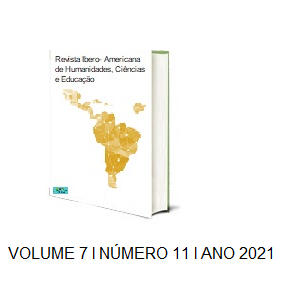ANÁLISE DO AUTOCONTROLE EM ALUNOS ALFABETIZADOS SOB A PERSPECTIVA DA INTELIGÊNCIA EMOCIONAL
DOI:
https://doi.org/10.51891/rease.v7i11.3065Palavras-chave:
Inteligência emocional. Emoções. Autocontrole.Resumo
A inteligência emocional é versada como a competência que proporciona ao indivíduo a habilidade de reconhecer, gerir e regular suas próprias emoções. Esta investigação retrata o nível das habilidades da inteligência emocional, especificamente, o autocontrole de discentes de duas instituições sendo que uma tem em sua grade curricular programas de desenvolvimento da inteligência emocional e a outra não dispõe desse benefício. O objetivo é analisar o efeito da aprendizagem emocional em alunos alfabetizados sob a perspectiva da inteligência emocional do Colégio Atena e comparar aos da Escola Tancredo Neves, não alfabetizados emocionalmente. O método se deu por um estudo de caráter descritivo, situada na visão Psicolinguística e Cognitiva, Educação e inteligência emocional: cultura e desenvolvimento pessoal, apoiada teoricamente nos estudos das emoções, inteligência emocional, gerenciamento e regulação das emoções, com abordagem quali-quantitativa e correlacional, cuja amostra contou com 104 estudantes. Para recolha de dados foi utilizado o questionário (Medida de Inteligência Emocional - MIE). Nos resultados, observou-se que os inquiridos da Escola Tancredo Neves apresentam ligeiro resultado positivo comparado ao Colégio Atena. Todavia, percebe-se, no panorama geral, quanto ao domínio das emoções, que não se pode considerar satisfatório os resultados em ambas as instituições visto que em vários aspectos menos de 50% dos questionados apontam pouca capacidade para lidar bem com as emoções. Conclui-se que as emoções tendem a se manifestarem na forma de padrões de pensamentos, sentimentos, comportamentos e influências, contudo, são moldáveis, ou seja, podem ser aprendidas em contextos formais e informais de aprendizagem, portanto não se pode ignorar a interferência provocada no comportamento dos humanos, o que exige uma maior conscientização e envolvência por parte dos gestores da educação no sentido de aplicabilidade no currículo escolar relativos às componentes emocionais.
Downloads
Downloads
Publicado
Como Citar
Edição
Seção
Categorias
Licença
Atribuição CC BY

